The 22nd Annual Conference on WTO and China was successfully held at UIBE, WTO Chair in Beijing
On November 28 - 29, 2023, the 22nd Annual Conference on WTO and China, hosted by University of International Business and Economics (UIBE), Shanghai University of International Business and Economics (SUIBE), China Society for World Trade Organization Studies, organized by China Institute for WTO Studies (UIBE), supported by WTO Chairs Programme and Network on International Trade and Investment System(NITIS), was successfully held at UIBE. The conference was set up with the focus on the shifting trading system, WTO Reform and Prospects of the 13th WTO Ministerial Conference. More than 200 experts and scholars from various local and abroad universities and research institutes participated in the conference simultaneously onsite and online.
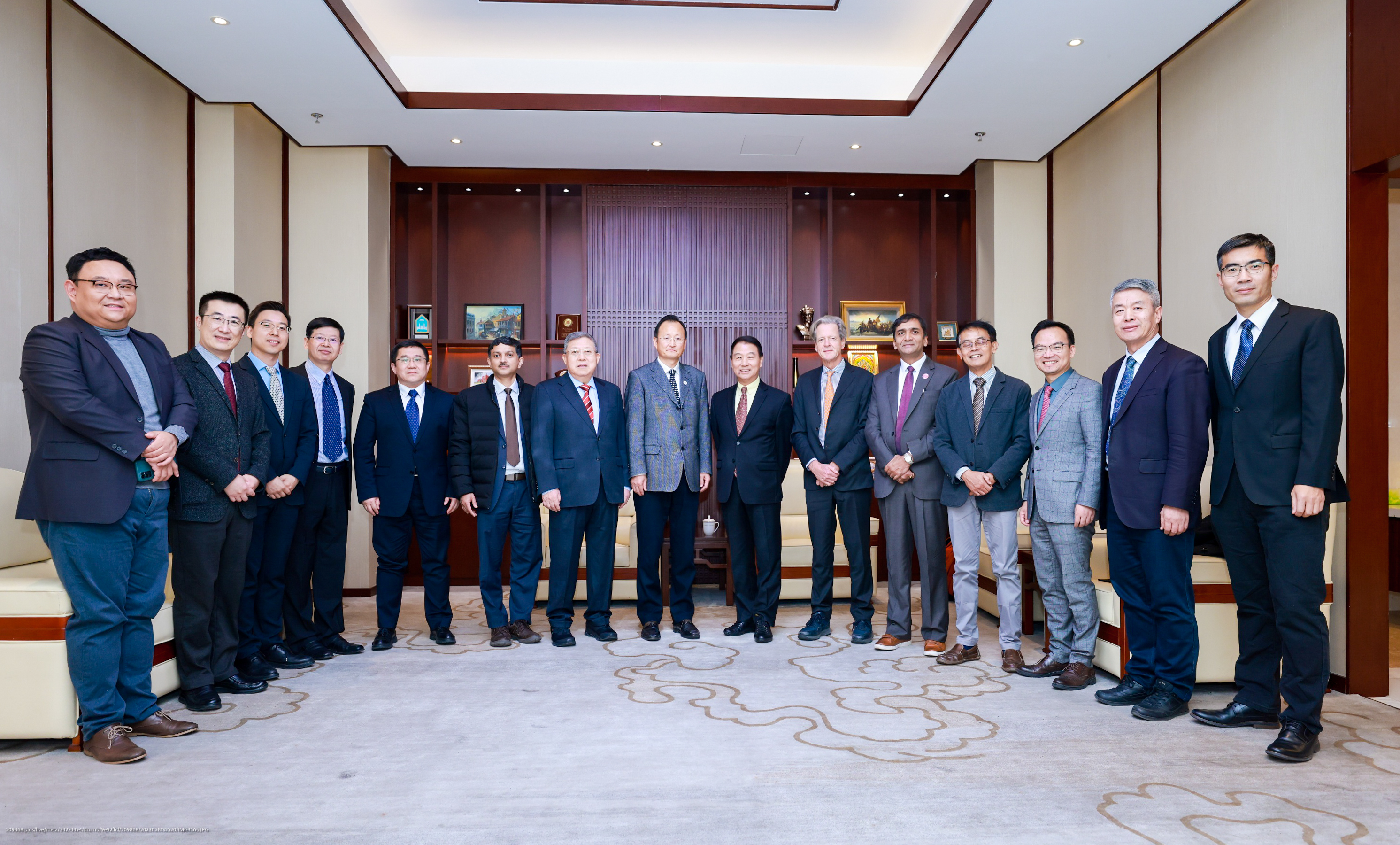
In the afternoon of November 28, the opening ceremony of the annual meeting was held grandly in Conference Hall on 2nd floor of International Plaza Building, UIBE. The session was presided over by Prof. Tu Xinquan, Dean of China Institute for WTO Studies and WTO Chairholder at UIBE. Professor Huang Baoyin, Chair of the University Council, UIBE, Professor Wang Rongming, President of SUIBE, Han Yong, Director General of Department of WTO Affairs, Ministry of Commerce, and the representative from WTO Secretariat respectively delivered opening remarks, highlighting their expectations for the conference and the importance of Asia playing a greater role in WTO affairs, which set a positive and cooperative tone for the annual meeting, and laid a solid foundation for subsequent in-depth discussions and exchange activities.
Professor Huang Baoyin, Chair of the University Council, UIBE, stated that WTO is an important supporter of multilateralism and an important platform for global economic governance. China is transforming from a WTO receiver to an active participant. He also mentioned that China Institute for WTO Studies of UIBE is an important institution for conducting WTO research and has initially formed a "trinity" development pattern with three important platforms: Ministry of Education's key research base for humanities and social sciences, Network on International Trade and Investment System, and the WTO Chairs Program. In the future, UIBE will, as always, strongly support China Institute for WTO Studies as a WTO Chair in accelerating its development into a top domestic and world-class research institution specialized in WTO and global economic and trade governance. Professor Wang Rongming, President of SUIBE, delivered an opening speech, saying that the current situation is undergoing profound changes unseen in a century. The world situation is full of uncertainties, unilateralism, hegemonism and global challenges are prominent. The WTO still plays an important and positive role, such as resolving trade conflicts through dispute settlement mechanism. Regarding WTO reform, Professor Wang believes that the WTO should take the initiative to prioritize reforms and promote negotiations among countries based on the basis of 12th Ministerial Conference. China should actively participate in WTO reform proposals, continue to be a believer and defender of multilateralism, continue to carry out teaching and research communication, exchanges and cooperation, and exert synergistic effects. Han Yong, Director General of Department of WTO Affairs, Ministry of Commerce, presented in his opening speech that China should firstly actively participate in the leadership resolution on WTO reform and play the leading role as a big country; secondly, closely follow the instructions of President Xi Jinping, exert its historical responsibility and creative spirit, so that China can achieve results beyond expectations through its efforts at the 12th Ministerial Conference; and lastly, promote local participation in WTO work. A representative from WTO Secretariat delivered a video speech mentioning that trade has always been the driving force of growth and development in Asia. The presence of WTO Chairs from all regions of Asia also showed a clear intention that the core value of the program is to promote the network of teaching programs, achieving collaboration and resource sharing internally and among various communities. At the same time, it affirmed the importance of the VILLARS Sustainable Global Trading System that was discussed in the annual meeting.
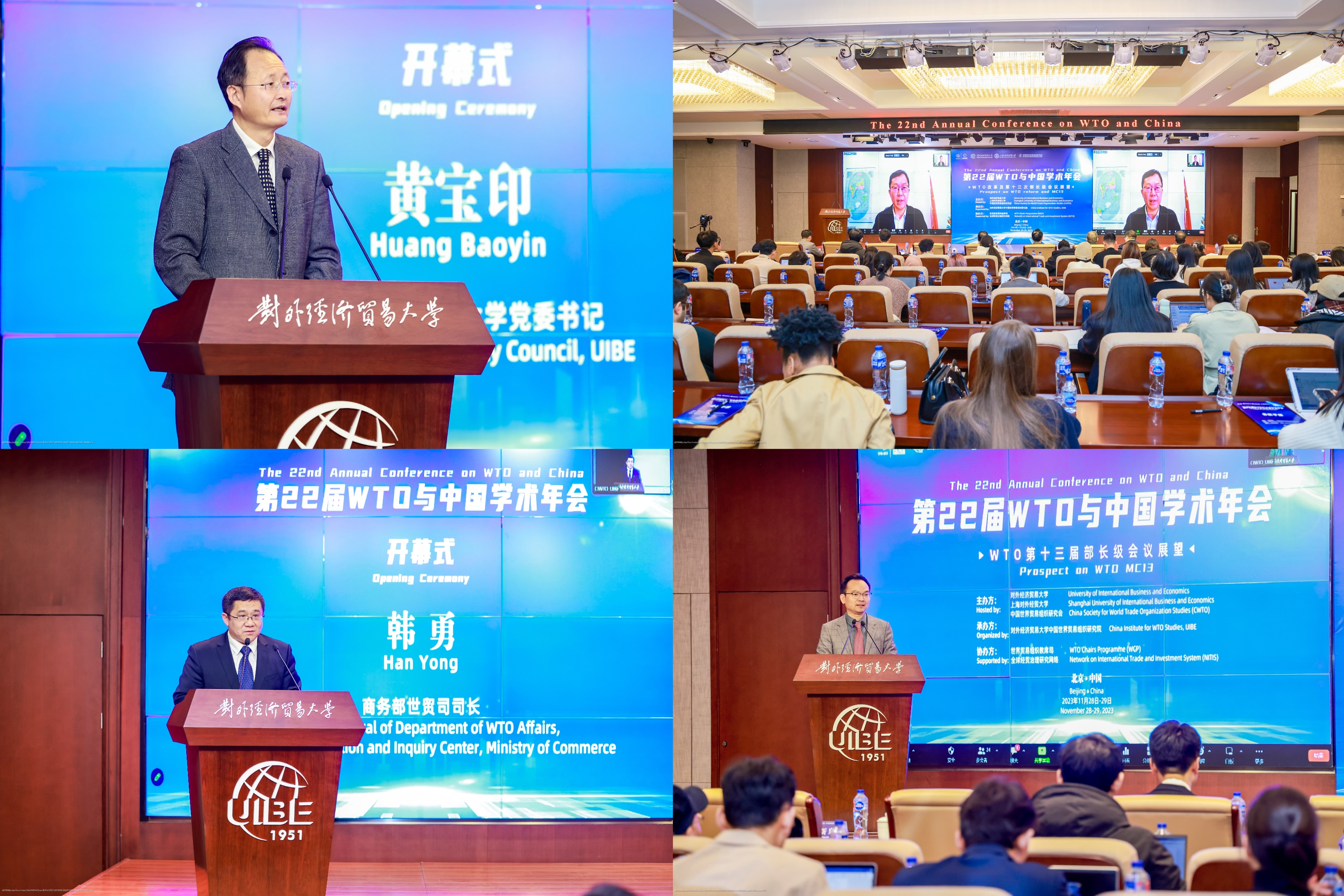
After the opening ceremony, the keynote speech session began, hosted by Associate Professor Ying Pinguang, Vice Dean, School of Trade Negotiations, SUIBE (WTO Chair). Yi Xiaozhun, former Deputy Director-General of WTO, Chong Quan, President of China Society for WTO Studies, Li Xin, Deputy Representative of the International Monetary Fund to China, Wang Huiyao, President of Center for China and Globalization Think Tank, Hong Junjie, Vice President of UIBE, and Li Yihong, Minister of China's Permanent Mission to WTO, respectively delivered speeches and conducted a comprehensive discussion on the future direction of WTO reform, topics of the 13th WTO Ministerial Conference, multilateral trading system, and global value chain.
Yi Xiaozhun, former Deputy Director-General of WTO, pointed out that in the process of WTO reform, China should set an example by taking the lead in complying with multilateral trading rules to win the trust of all parties, and taking the initiative to open its market to promote win-win cooperation under the multilateral framework. China should also play its role as a bridge between developed and developing countries, actively propose more inclusive and practical multilateral reform initiatives, strive to provide more public goods to the WTO, and gradually promote the formation of a new global trading governance pattern of collective leadership and benign co-governance. Chong Quan, President of China Society for WTO Studies, said that the WTO is a promoter of economic growth, poverty alleviation and social welfare. China should cooperate with the United States and other WTO members to solve problems and contribute to the success of the 13th WTO Ministerial Conference. Li Xin, Deputy Representative of the International Monetary Fund to China, conducted a study and judgment on the global economic macro environment after the epidemic. Wang Huiyao, President of Center for China and Globalization Think Tank, elaborated on the matter that the multilateral system has arrived, but the multilateral governance system has not yet been formed. Although the WTO is facing a lot of problems, it is still a platform with great potential. Hong Junjie, Vice President of UIBE, gave an academic sharing on global value chain (GVC) issues. He pointed out that the expansion and development of GVC has its own rules and has regional and structural changes. The trade war between China and the United States has a great destructive effect on GVC. Li Yihong, Minister of China's Permanent Mission to WTO, shared the latest progress of WTO negotiations, involving many issues such as the reform of dispute settlement mechanism, agricultural and food security issues, and fishery subsidy negotiations, which was very enlightening.
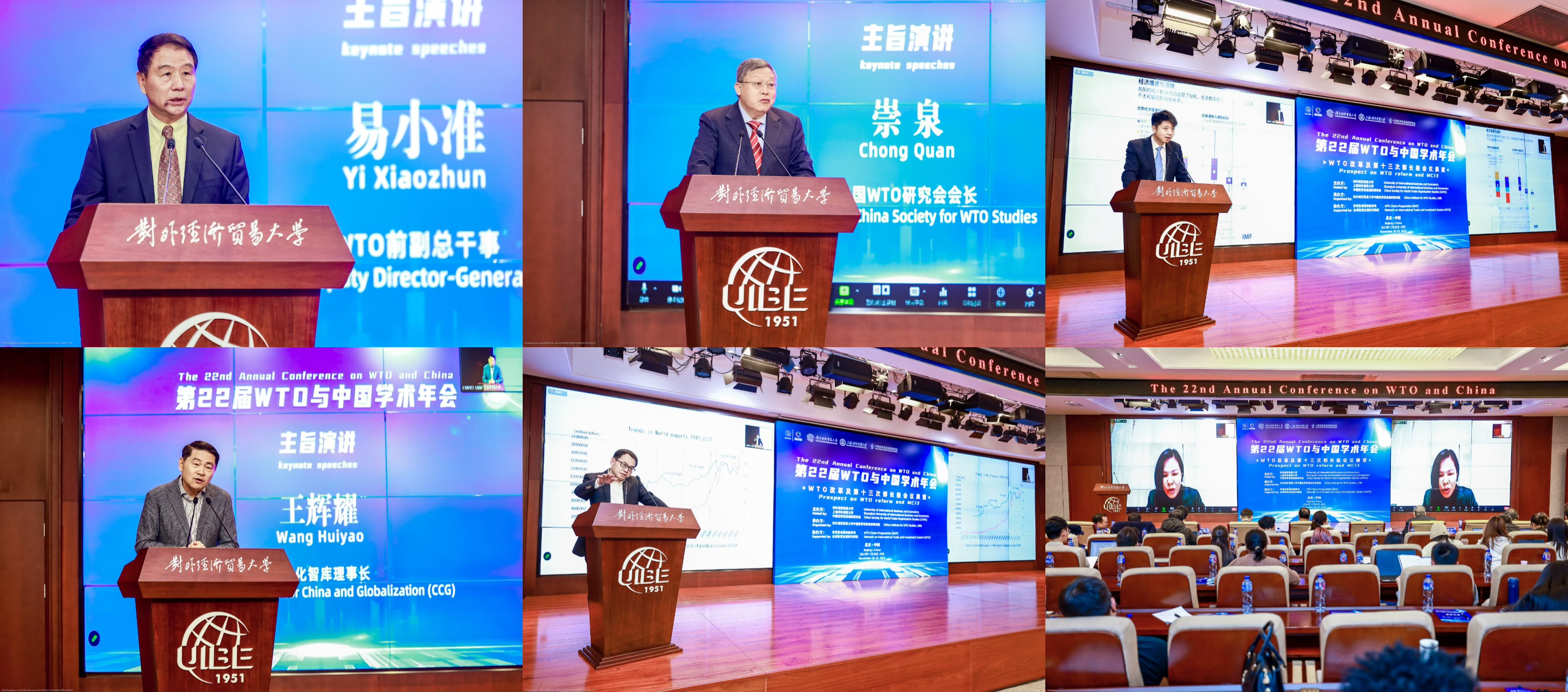
After the keynote speech, the first session of special seminar began, with the theme of "Villars Framework for a Sustainable Trade System". It was hosted by James Nedumpara, WTO Chairholder at Indian Institute of Foreign Trade, and the speakers Professor Daniel Esty from Yale University, Professor Riza Arfani, WTO Chairholder at Universitas Gadjah Mada in Indonesia, Professor Achyut Wagle, WTO Chairholder at Kathmandu University in Nepal, Luong Thi Ngoc Oanh, Vice Dean of Faculty of International Economics from WTO Chair at Foreign Trade University in Vietnam, Zhang Jianping, Researcher at Chinese Academy of International Trade and Economic Cooperation, Associate Professor Ding Ru from China University of Political Science and Law, and Assistant Professor Qin Ruobing from WTO Chair at UIBE in Beijing, participated in the discussion.
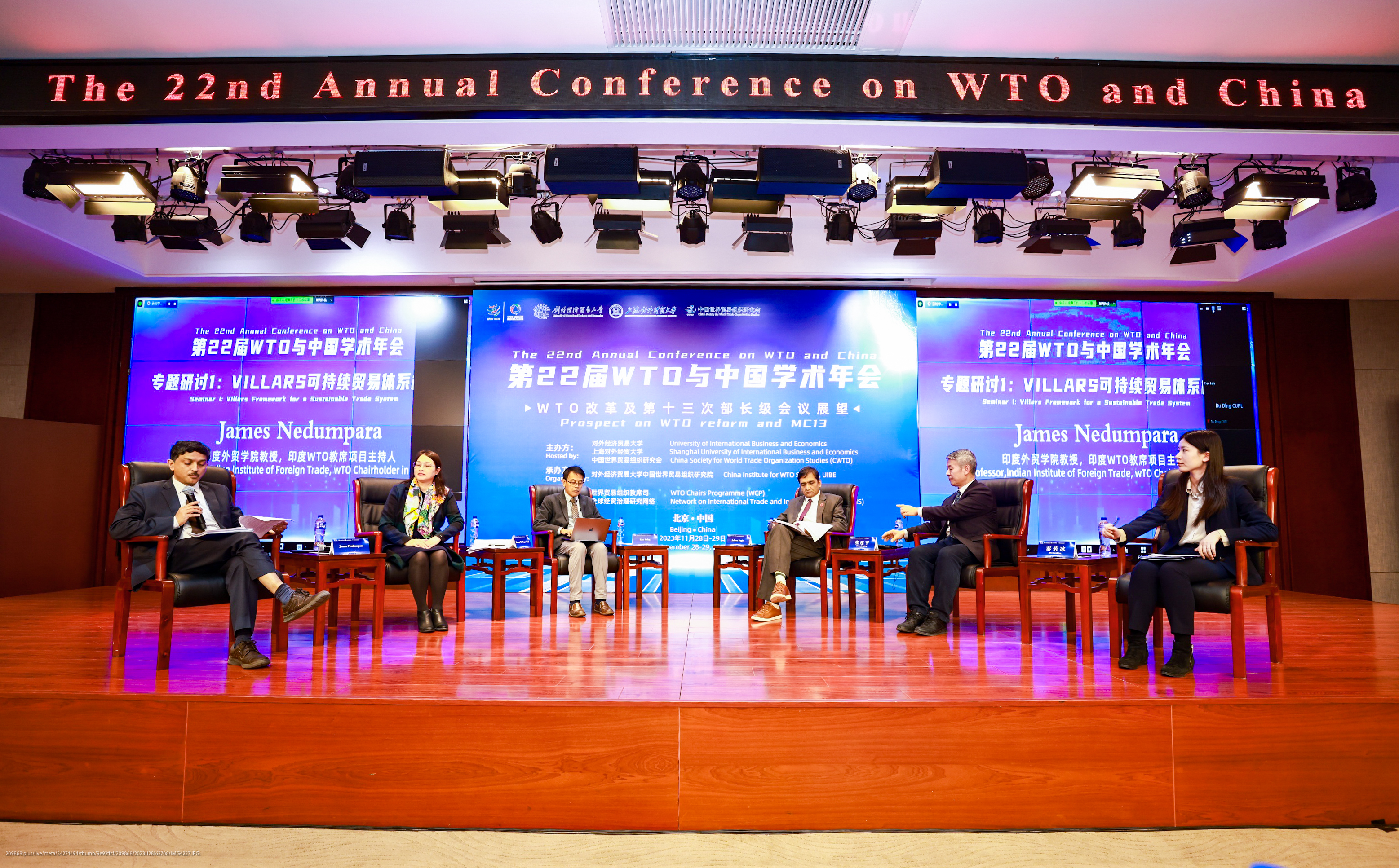
Professor Daniel Esty from Yale University introduced the VILLARS framework of the WTO sustainable trading system. Professor Daniel Esty has repeatedly stressed the sustainability of trade, analyzed the challenges existing in the trade system, and proposed the need for the whole society to equally participate in discussions on trade sustainability. Qin Ruobing, Assistant Professor from WTO Chair at UIBE, commented that the VILLARS framework has given us a more complete idea of researching green trade and environmental governance. Currently, there is no unified approach to carbon pricing and a lack of underlying research support. This framework is very important for building a better understanding of green trade and environmental governance. An inclusive border regulation mechanism for greenhouse gas emissions provides constructive suggestions. Ding Ru, Associate Professor from China University of Political Science and Law, shared a report on how to distinguish harmful and beneficial subsidies, mainly showing a two-dimensional matrix diagram of sustainable trade distortions, and presented three types of problematic comments, including how the VILLARS framework can deal with some existing problems, how to deal with invisible subsidies, etc. Luong Thi Ngoc Oanh, Vice Dean of Faculty of International Economics from WTO Chair at Foreign Trade University in Vietnam, believes that the VILLARS framework report is very comprehensive. She proposed that a sustainable trading system should create a sustainable environment for everyone. Zhang Jianping, Researcher at Chinese Academy of International Trade and Economic Cooperation, pointed out that it is difficult to correlate trade issues and environmental issues. He proposed that CBAM poses a major challenge to the WTO system and violates the WTO's Most Favored Nation (MFN) principle. Professor Achyut Wagle WTO Chairholder at Kathmandu University in Nepal and Professor Riza Arfani WTO Chairholder at Universitas Gadjah Mada in Indonesia fully discussed the VILLARS framework from the perspective of developing economies.
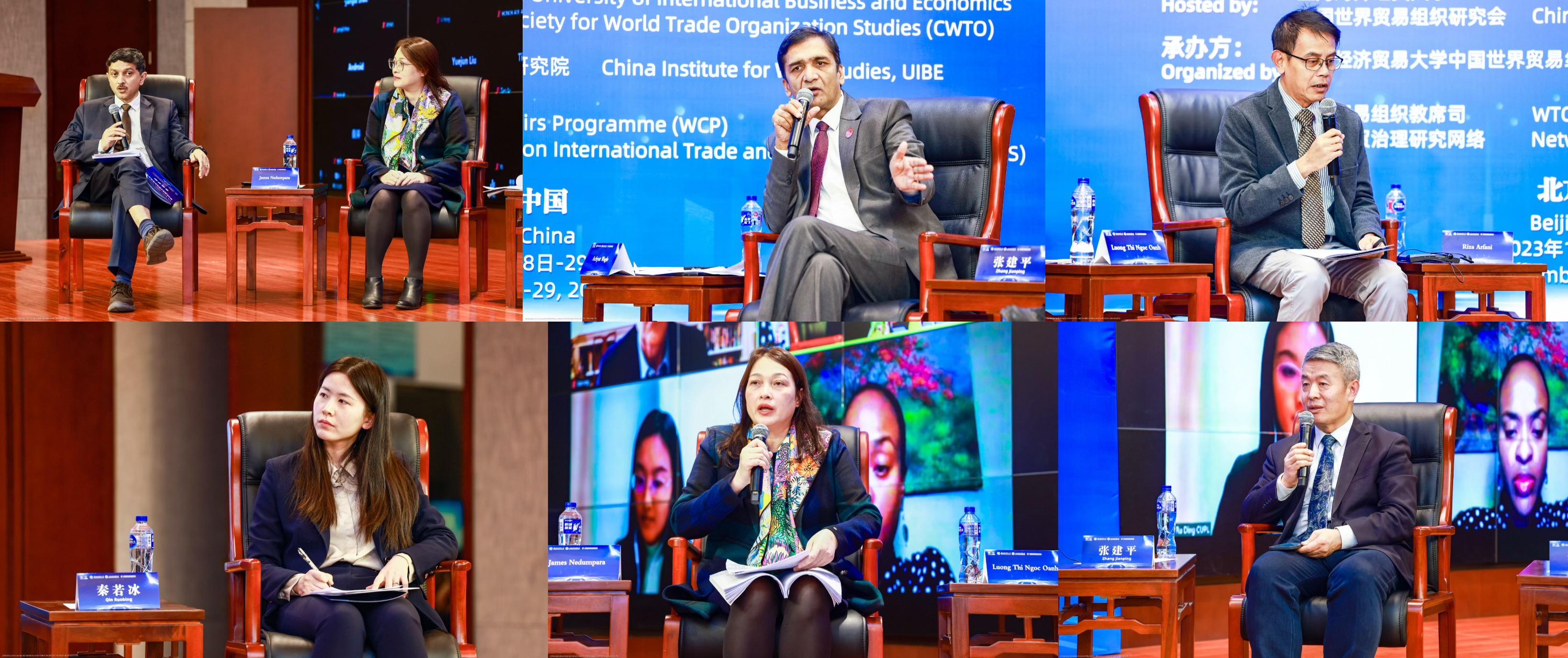
The second session of the forum "Global impacts of China-US Economic and Trade Relations" was chaired by Prof. Tu Xinquan WTO Chairholder at UIBE in Beijing. Under this topic, participating scholars discussed the trade relations, cooperation opportunities and challenges between two major economies China and the United States, and their potential impacts on the global economic pattern. Researcher Zhou Mi from Chinese Academy of International Trade and Economic Cooperation emphasized the key role played by China and the United States in the WTO and their importance as key players in shaping global trade pattern. By analyzing trade data, he pointed out that the United States' share of total world trade is relatively stable, and China's trade growth can also bring new hope to international economy. In response to current economic challenges, he advocated innovation as a key driver and said benchmarking international rules may be more appropriate than "internationalization of domestic laws". Li Yong, Deputy Director of the Academic Committee of the China Association of International Trade, presented the impact of China-US trade on the world economy, and deeply discussed key issues such as "China-US decoupling" and "risk reduction". He emphasized the importance of supply chain diversification based on elucidating the potential consequences of these phenomena. In addition, he pointed out that the unique advantages of China's market size and market economic system determine its ability to activate the economy. Luong Thi Ngoc Oanh, Vice Dean of Faculty of International Economics from WTO Chair at Foreign Trade University in Vietnam, took tea and cocoa beans as analysis objects and analyzed the overall performance of developing countries from perspective of global value chain, pointing out that the trade development trend of developing countries is uncertain. James Nedumpara, WTO Chairholder in India, declared that China-US economic and trade relations are actually not a financial issue, but a globalization issue. He focused on the role of industrial policy in promoting economic growth and emphasized the important role of industrial policy in supporting the development of emerging industries. Tang Xiaobing, Former Senior Counsellor of the Market Access Department, WTO Secretariat, delivered a keynote speech titled "Future Challenges of the WTO and Talent Cultivation for International Organizations". He specified that in the challenges faced by WTO reform, it is recommended to correctly examine the international rules themselves, rather than stick to what is happening currently; in addition, he also combined his work experience at the WTO to share with researchers in scientific research institutions how to learn to think within the rules. Ying Pinguang, Vice Dean of School of Trade Negotiations, SUIBE, believes that world globalization currently faces three major challenges, "maintaining peace and security", "reducing poverty and inequality" and "realizing inclusive needs and sustainable capabilities". He indicated globalization needs to urge capable members (such as China, the United States and the European Union) to increase investment in the medical economy and help with infrastructure development.
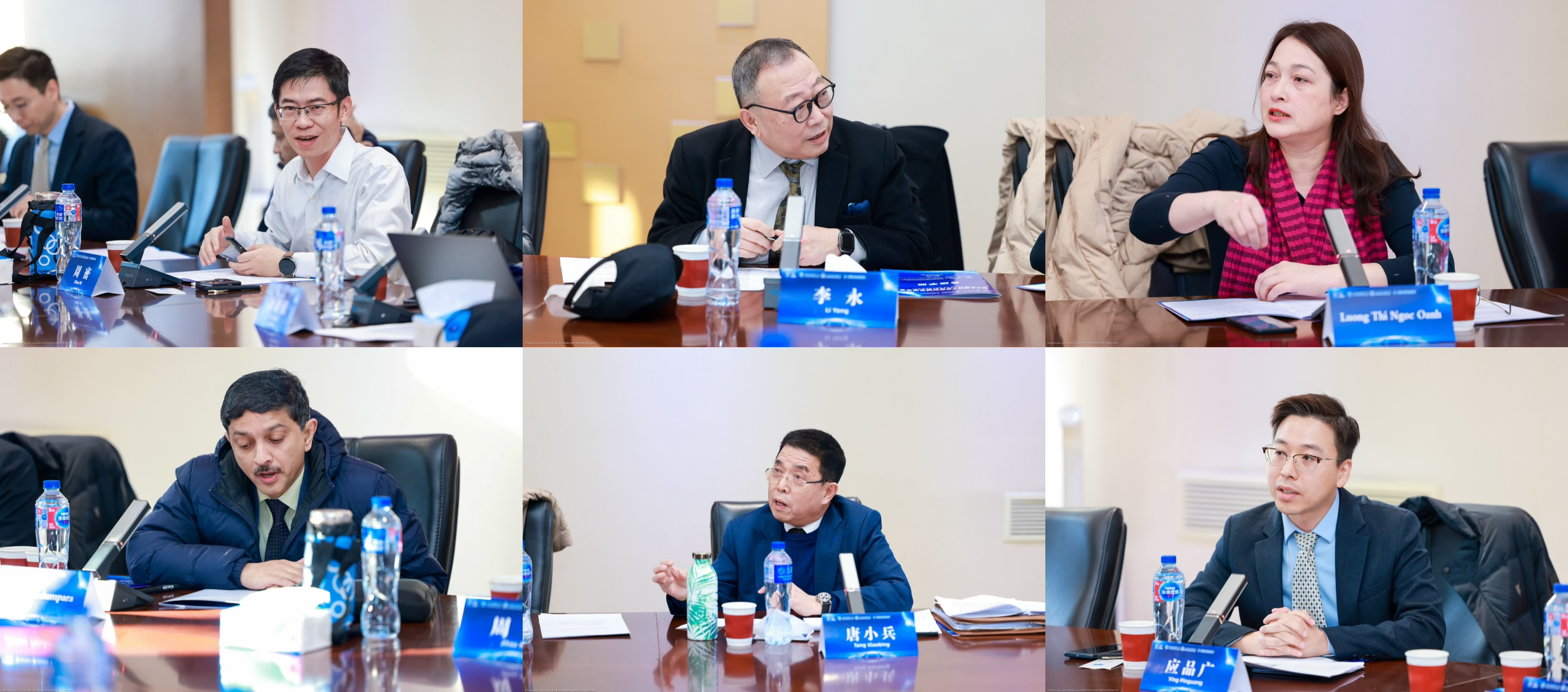
The third session of the forum was titled "WTO MC13 Prospects and WTO's future" and was hosted by Li Siqi, Associate Professor from China Institute for WTO Studies, WTO Chair at UIBE. Under this topic, participants discussed in depth the impact of the 13th WTO Ministerial Conference on the global trading system and how to promote the WTO's path to respond to emerging trade challenges and reforms in the future. Hong Xiaodong, Former Director of WTO Division at Ministry of Commerce, believes that the WTO needs to refocus on trade-related issues, returns to the negotiating table, and emphasizes the need for close unity among members. He called for the establishment of a "functional" and "effective" WTO and provided an in-depth analysis of the future internal dynamics of global trade governance. Professor Cui Fan from School of International Trade and Economics, UIBE pointed out that multilateral rationality still exists under the anti-globalization situation, and advocated efforts to make the WTO more balanced. He believes that the WTO needs to reform its censorship system and use scientific research as a pragmatic method to establish a fair global trade framework. From an environmental perspective, Professor Riza Arfani, WTO Chairholder in Indonesia, emphasized the role of green policies in international trade and believed that it is urgent to adjust international trade rules to adapt to environmentally sustainable development. Maarten Smeets, Former head of section at the Institute for Training and Technical Co-operation (ITTC), WTO, mentioned that the lack of trust in trade is an important issue in the future, special attention should be paid to the threats facing globalization, including rising protectionism and geopolitical tensions. He believes that the WTO needs to face these challenges, with special emphasis on the key role of digital trade in rebuilding trust. Professor Achyut Wagle, WTO Chairholder in Nepal, called for improving the operational efficiency of the WTO, solving the shortcomings of current dispute settlement mechanism, and advocating the establishment of a more adaptable and responsive WTO to deal with anti-globalization situation in trade. Researcher Tan Xiaowen from WTO Chair Institute-China, SUIBE conducted a detailed analysis on the issue of multilateral digital trade rules, mentioning that all parties have reached a major consensus under the issue of "inclusive development of digital trade". She also emphasized that the rules do not impose strong obligations on members, but provide opportunities for members to exchange best practices.
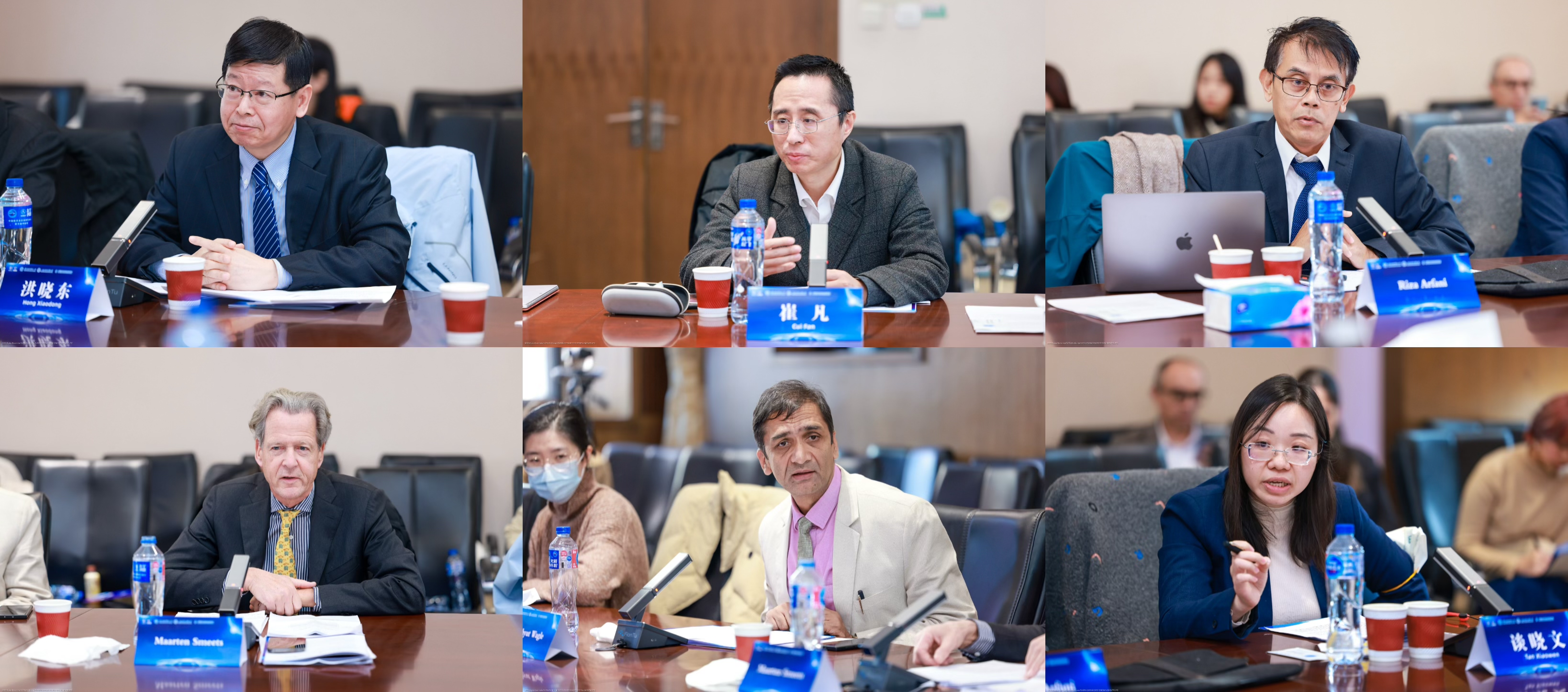
In the morning of November 28, before the annual conference officially started, the "WTO Asian Chairs Roundtable" was held in Conference Room 505 at Scientific Research Building. The WTO Asian Chairs from China, Indonesia, Nepal, Vietnam and other places exchanged views on topics such as "development of the multilateral trading system", "WTO reform", "sustainable development" and "emerging markets", and jointly discussed regional cooperation and contributed Asian wisdom.
It has been more than 20 years since China joined the WTO, and the future is still long and depends on the present. Today, the WTO is moving forward in an unfavorable situation, including obstacles to trade globalization and frequent conflicts in the world. Its dispute settlement mechanism and work issues are facing arduous challenges. At this annual conference, scholars from different universities and research institutions in many countries and regions brought a wealth of emerging research results, including insights into WTO reform, outlook for the 13th WTO Ministerial Conference, and the framework of a sustainable trading system. Extensive and in-depth exchanges and discussions were conducted. It is worth noting that the participation of WTO Asian Chairs from various Asian countries in this conference has strengthened Asia's influence in the WTO through detailed exchanges, provided a rich Asian perspective for the development of multilateral trading system and WTO reform, and promoted Asian countries to participate more actively in international trade affairs. WTO reform is not easy, and China will serve as the backbone to actively promote the steady development of reform, help improve the multilateral governance system, and shoulder the responsibilities of a big country.
Since 2002, the "Annual Conference on WTO and China" has been successfully held for 22 years. It has become a forum for local and foreign experts in relevant fields to discuss WTO issues, multilateral economic and trade cooperation, global economic governance, globalization and China's economic development, etc. It is an important platform for the topic and provides a lot of useful information and new perspectives for policy formulation and academic researches.


